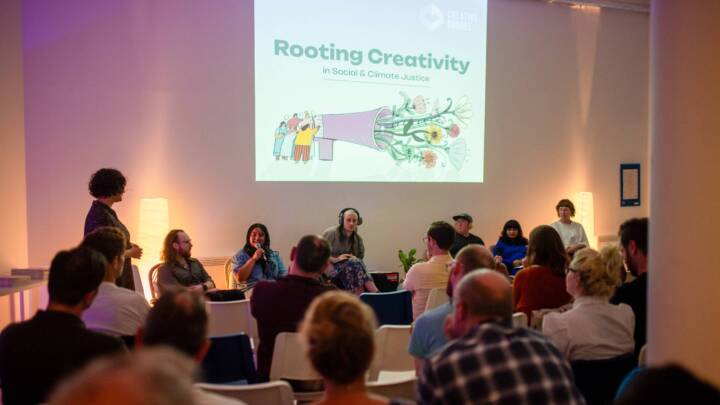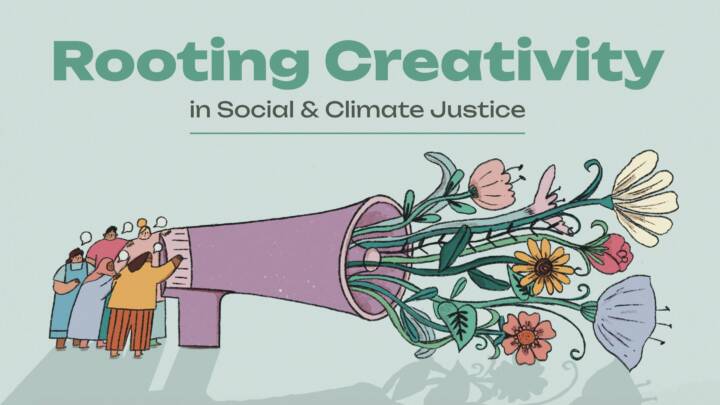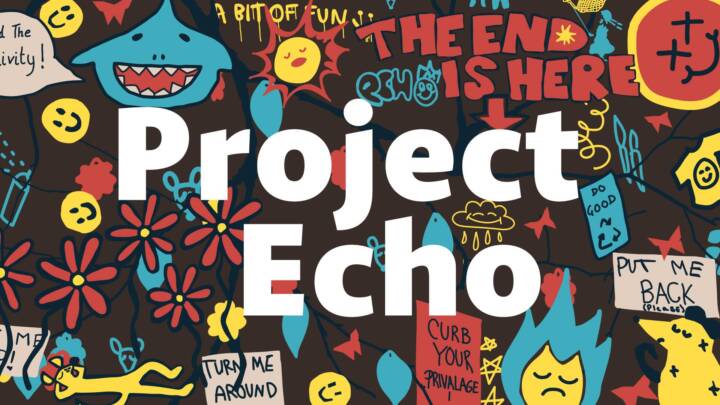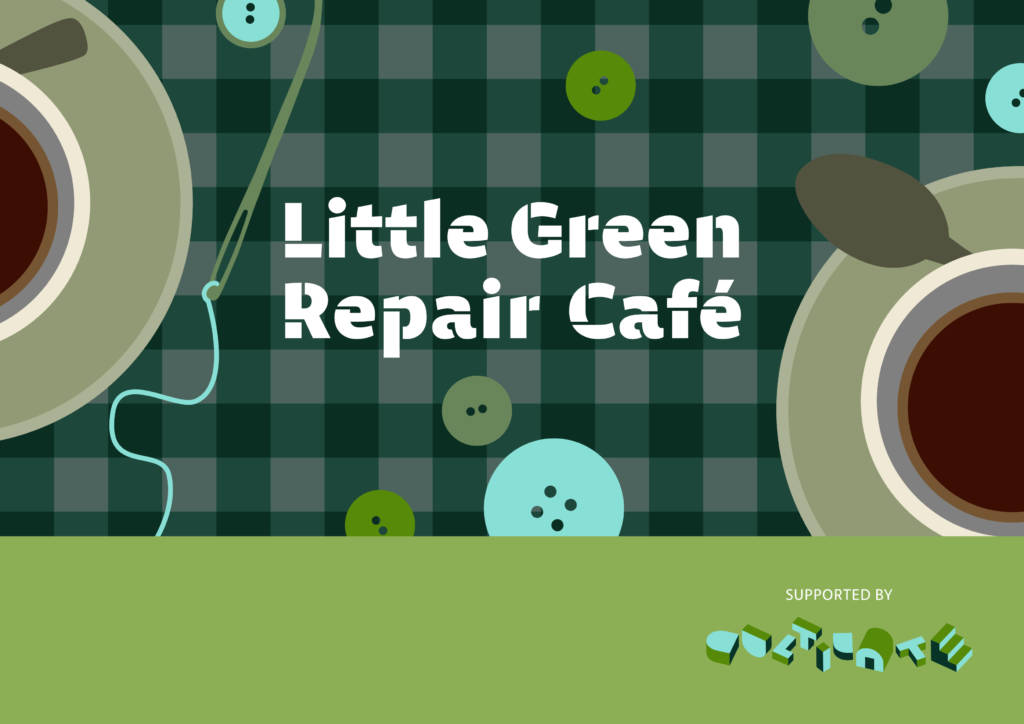
In this CULTIVATE Case Study, we share Creative Practitioner duo Kirsty McKeown and Jeni Reid’s collaboration with Community First in Forfar.
CULTIVATE is a regional leadership programme for Creative Practitioners and local communities to collaboratively explore new ways of embedding creativity at the core of grassroots collective action for climate justice, across the Tay region.
We introduced the programme and its participants in summer 2021, detailing each collaboration and the ambitions of the Creative Practitioners and Community Partners taking part. We also shared a mid-project reflection in February 2022, sharing some of the highlights and challenges we’ve experienced whist working on this pilot initiative.
This case study collates the work of Creative Practitioner duo Kirsty McKeown and Jeni Reid, and their Community Partner, Community First, who are based in Forfar, Angus. These case studies act as an archive for each CULTIVATE collaboration, aiming to share the learnings of each participant, demonstrate the impacts of individual projects, and provide concrete examples of the benefits of working with creative practitioners on community-led projects.
Project
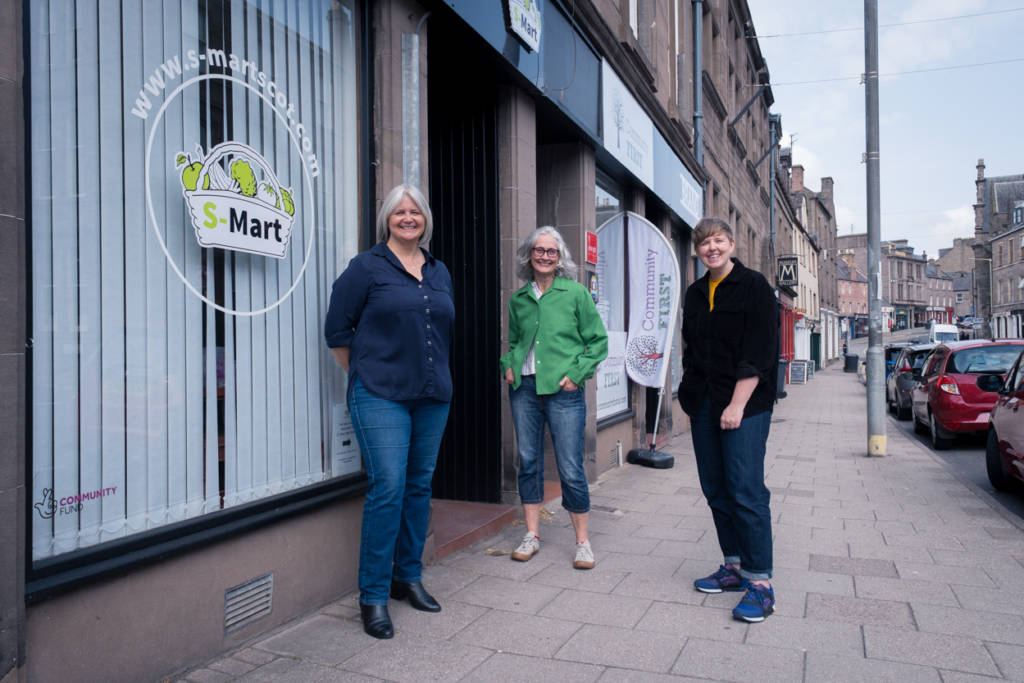
Creative Practitioners: Kirsty McKeown and Jeni Reid
Kirsty McKeown is a Dundee-based artist, working with materials and processes including collage, printmaking, analogue photography and altered objects, primarily using found materials and her immediate environment as inspiration. Her recent work explores duration and time using drawing, performance and film as a means of mapping environments. Kirsty has an interest in connecting and forming creative communities and since February 2021 has been making work as The Arbroath Correspondence School—an ongoing mail art project that rejects the expectation of 24/7 always-on communication and seeks to reinstate a sense of human connection and mutual learning utilising the postal service for the distribution of slow art. She’s co-organiser of Dundee Zine Fest as well as director of Chainworks Studios in Dundee, and she teaches Art and Design at Glasgow Clyde College.
Jeni Reid is an artist who lives and works in Angus using digital and alternative process photography, combined with paper and textiles to explore ideas about history, memory and belonging. She’s currently working with Arbroath 2020+1 on a project reflecting the town’s linen industry, placing large cyanotype prints in civic spaces. Previously a Social Worker specialising in mental health support, Jeni likes second hand clothes and other people’s stories. She’s easily distracted by seagulls.
Community Partner: Community First
Community First prioritises meeting the needs of their communities, with those needs best identified by the lived experiences of the community themselves. Community First support communities to identify and develop skills and knowledge, and as a result of their learning and experiences, increase in confidence at home, work and in their community lives.
Project ambitions:
Pauline Lockhart, co-founder of Community First, said, “Through our Social Supermarket S-Mart and Eco-friendly recycling shop BRAND, we want to inspire the next generation of eco warriors and encourage more people to reuse, upcycle and connect to make more sustainable choices whilst ensuring our message of reducing the stigma of poverty by providing choice and dignity, are at the core.”
Jeni said, “As a regular customer of S-Mart, I’m touched by the trust the organisation has already built up within the local community. It’s not just a shop, it’s a recognised meeting place which sparks meaningful relationships—essential for any positive change. We’ll be spending dedicated time getting to know the community, drilling down to the issues they face and pinpointing potential, locally-led solutions.”
Kirsty added, “With experience in everything from formal teaching and artist-led activity to working with hard-to-reach communities and social work, we’re also passionate about drawing, photography, sewing and print-making so there’s lots of potential here. We like to think we can engage with anyone, regardless of any barriers or preconceived ideas they might have.”
Process
Half-way into their commissions, CULTIVATE’s Creative Practitioners, were invited to share their journeys so far; you can read Jeni and Kirsty’s reflections in their mid-project blog.
With their Community Partner being a social supermarket, Kirsty and Jeni were particularly interested in how climate justice intersects with other systemic injustices. Their hope was that their work would also highlight and possibly improve other problems, alongside connecting with the community over climate justice solutions.
Their priority was focussing on positive actions and what people were already doing right, rather than adding to existing messaging of things individuals are doing wrong when tackling the climate crisis. In highlighting positive actions that the community were already taking—often out of necessity as much as choice—they hoped to encourage people to build on these actions.
By hosting innovative events and activities that the community would find fun, accessible and useful, Kirsty and Jeni could also use these opportunities to engage and connect with the community. And the unifying subject of food kickstarted their research: bringing people together to talk about it, make it and—most importantly—eat it!
Apple Day
To celebrate the apple harvest and foster conversations about local food, food waste, and food poverty, Kirsty and Jeni held an Apple Day, with the generous help of Dan Champion from Dalmore Croft in Barry.
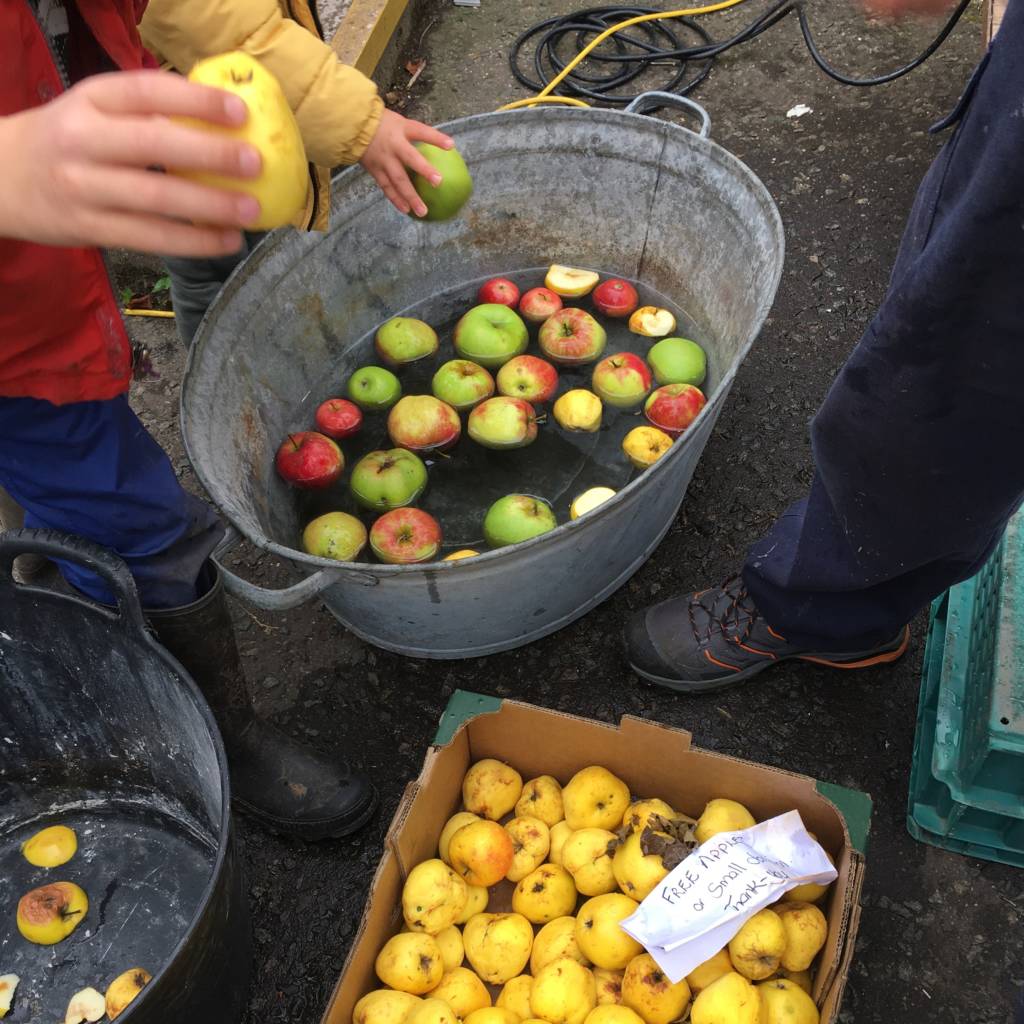
Held outside S-Mart, the event invited people to come and find out about the process of making apple juice—such as how to use an apple press and how the waste pulp is turned into livestock feed—and donations of local apples from people’s gardens were welcomed. Participants and passers-by were offered the fruits of Dan’s labour through apple juice accompanied by sweet treats, creating a chance to stop, chat and learn about the shop.
Christmas Fayre
Alongside other community organisations, Kirsty and Jeni hosted a stall at the shop’s Christmas Fayre. Using hand-made cardboard Christmas trees and colourful stickers as baubles, visitors were encouraged to write down a favourite food or food memory and decorate the trees.
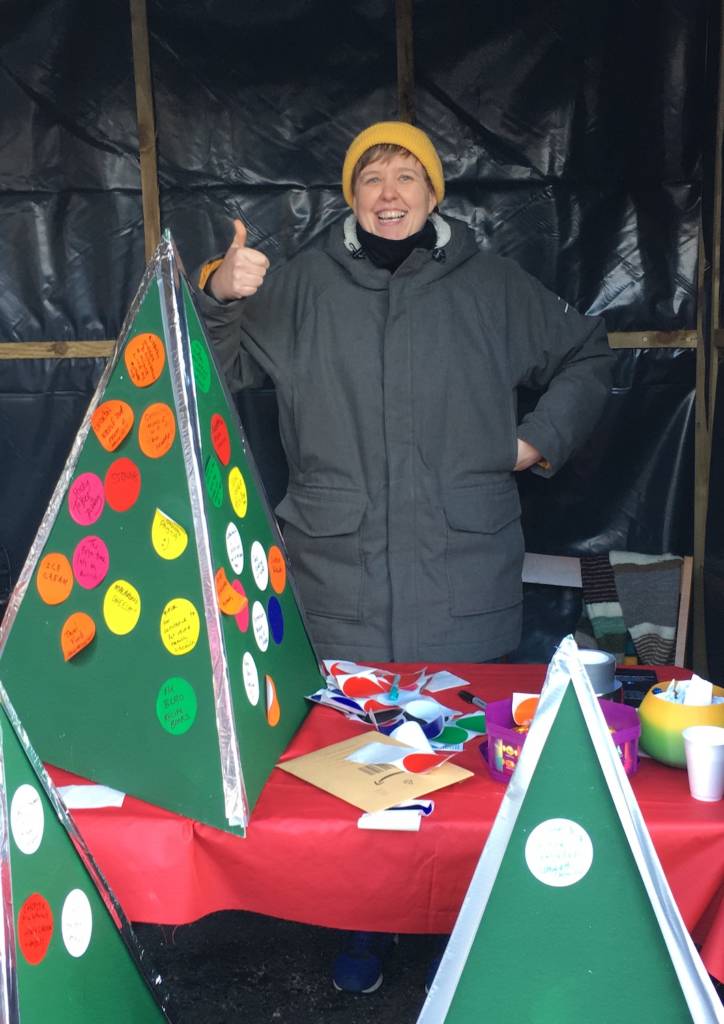
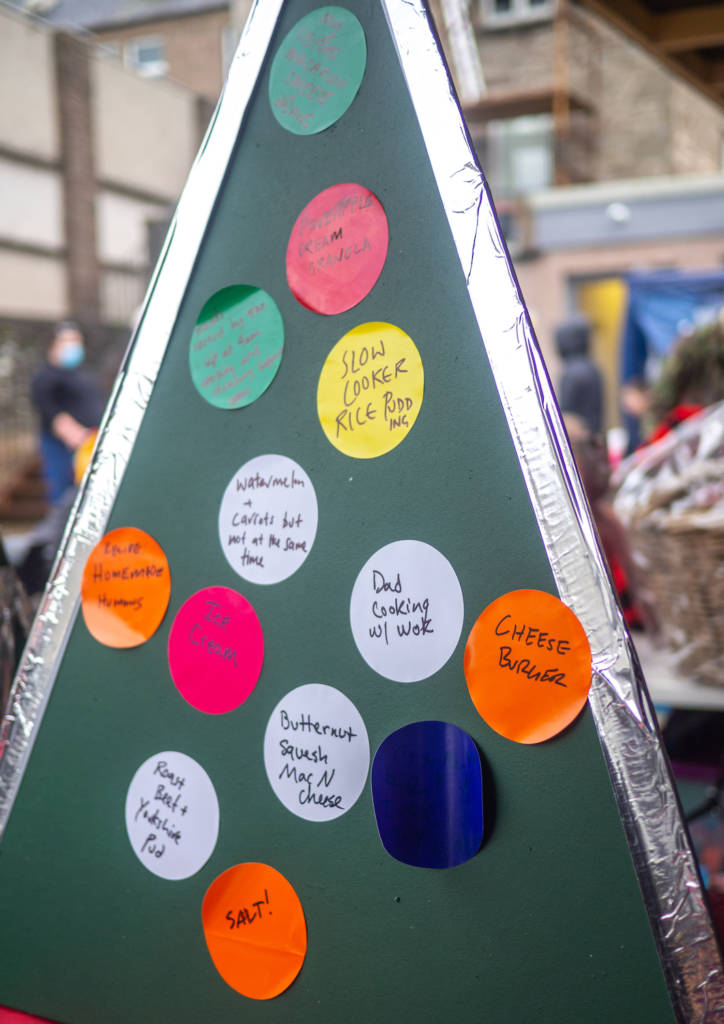
People wrote about memories of their parents making food, unusual recipes and shared favourites that sometimes surprised others—such as a young mother who discovered her child’s favourite food was watermelon. Conversations included talking about the different ways that food is important; from how it brings people together, to how it helps us stay healthy, to how to use up leftovers and avoid waste.
Outcomes
Working with Angus Young Carers
Community First’s relationship with Angus Young Carers was fostered during the first lockdown when they were supplied with baking packs for carers to make at home. Alongside their support worker, Heather Kilcoyne, Jeni and Kirsty worked with a small group of young people from across Angus. During their time with the group, Jeni and Kirsty wanted to help them get familiar with S-Mart and its ethos. They were given a tour of the space and chatted with the staff about why it’s different from a typical supermarket.
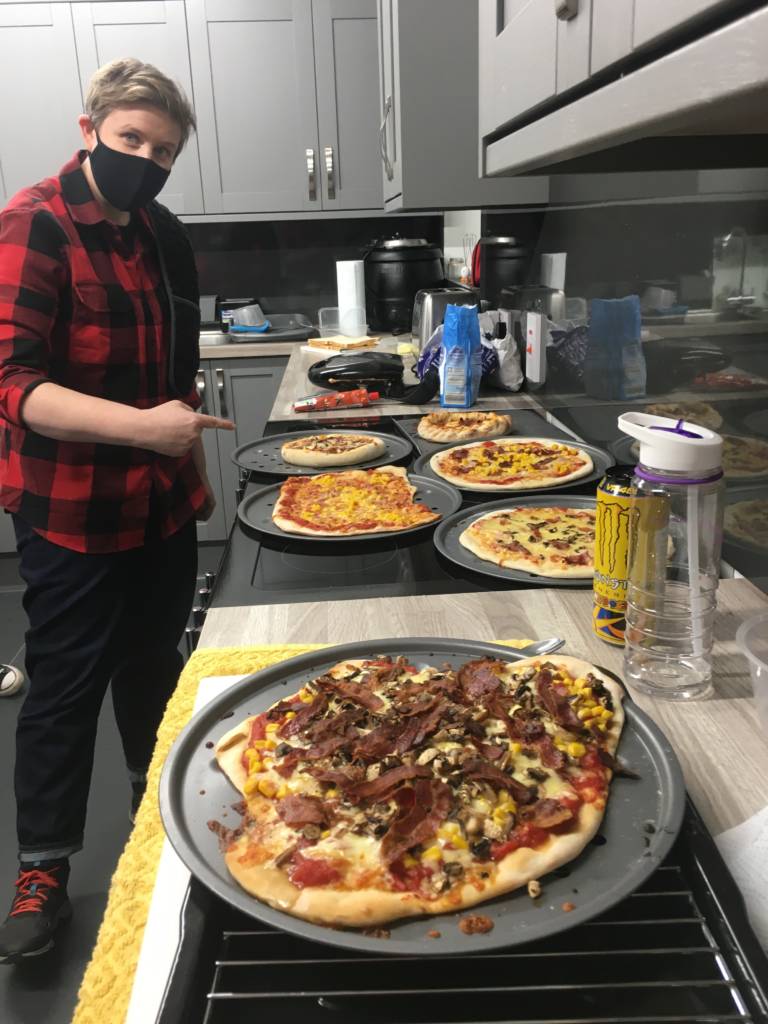
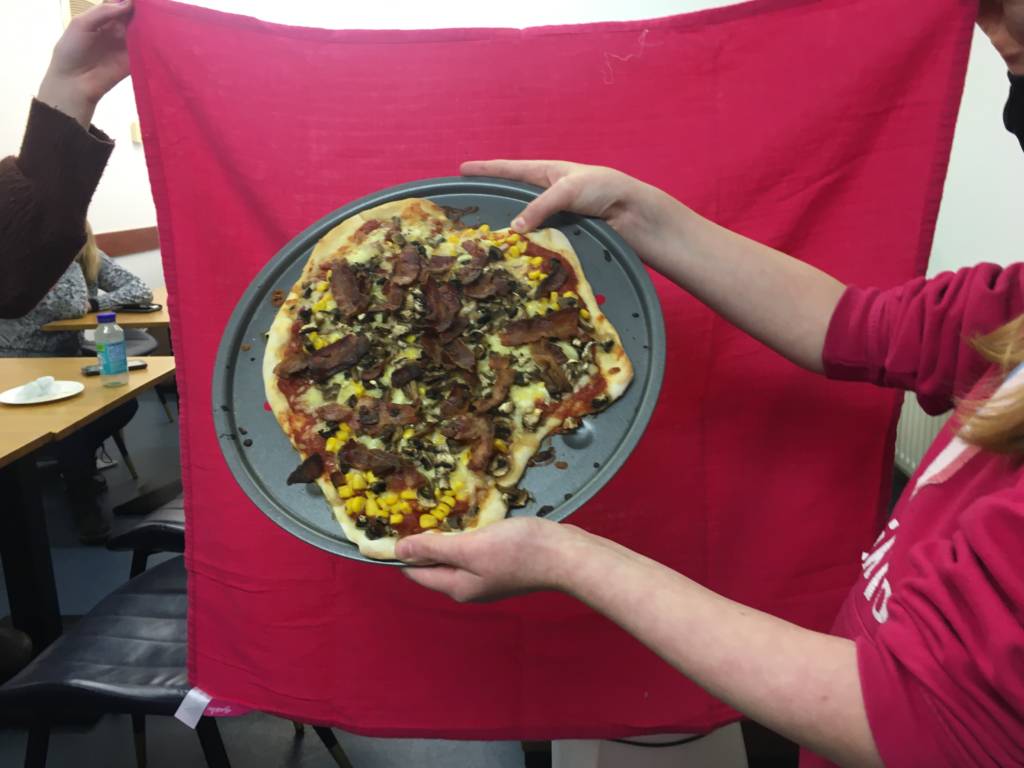
Kirsty and Jeni used cooking as a way to connect with the group and prompt discussion. The group were tasked with a Great Recipe Hunt, where they had to seek out recipes and food memories from people in Angus, and they helped to choose recipes and select ingredients from the shop. In order to facilitate discussions about food waste, Jeni and Kirsty translated statistics about food waste in Scotland by comparing the volume of tons of waste to elephants. They played on this by making and decorating elephant-shaped biscuits together, and showed that elephants standing nose-to-tail from Forfar to Dundee was the equivalent to how much food is wasted across the country each year.
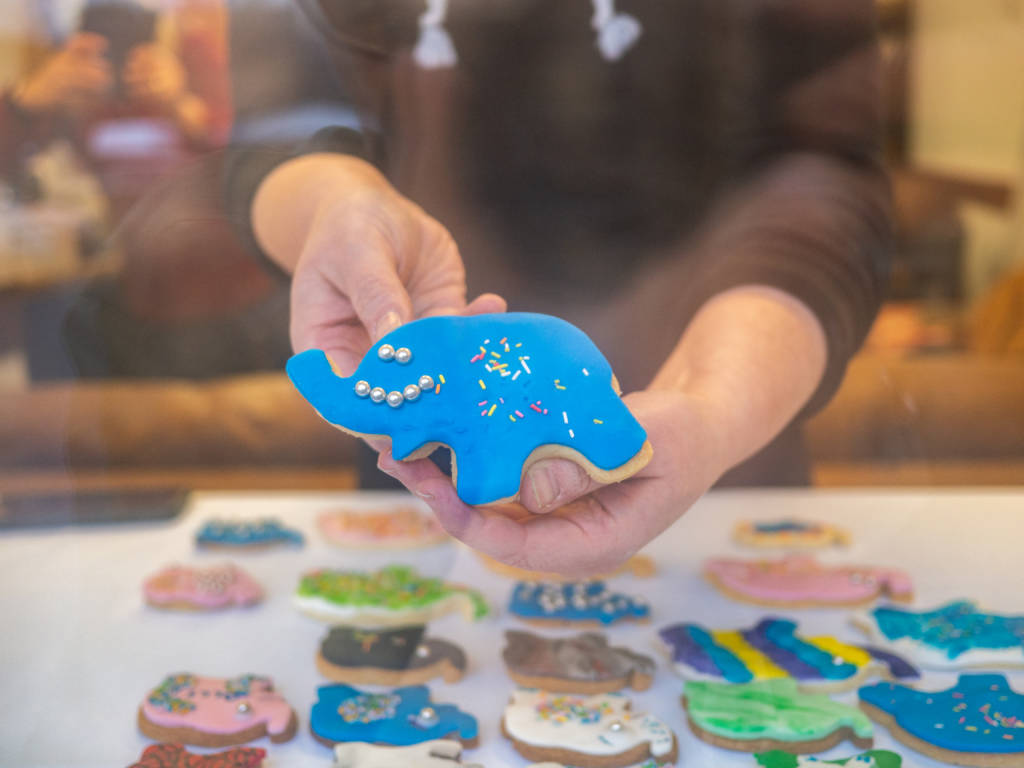
Plans for creating a cook book together were halted by Covid and Storm Arwen, with in-person meetings being disrupted by both. The plan was re-evaluated, and an art-pack of materials was delivered to each young person so that they could create food images at home—which the group brought to their regular meetings when they were able to connect in-person again.
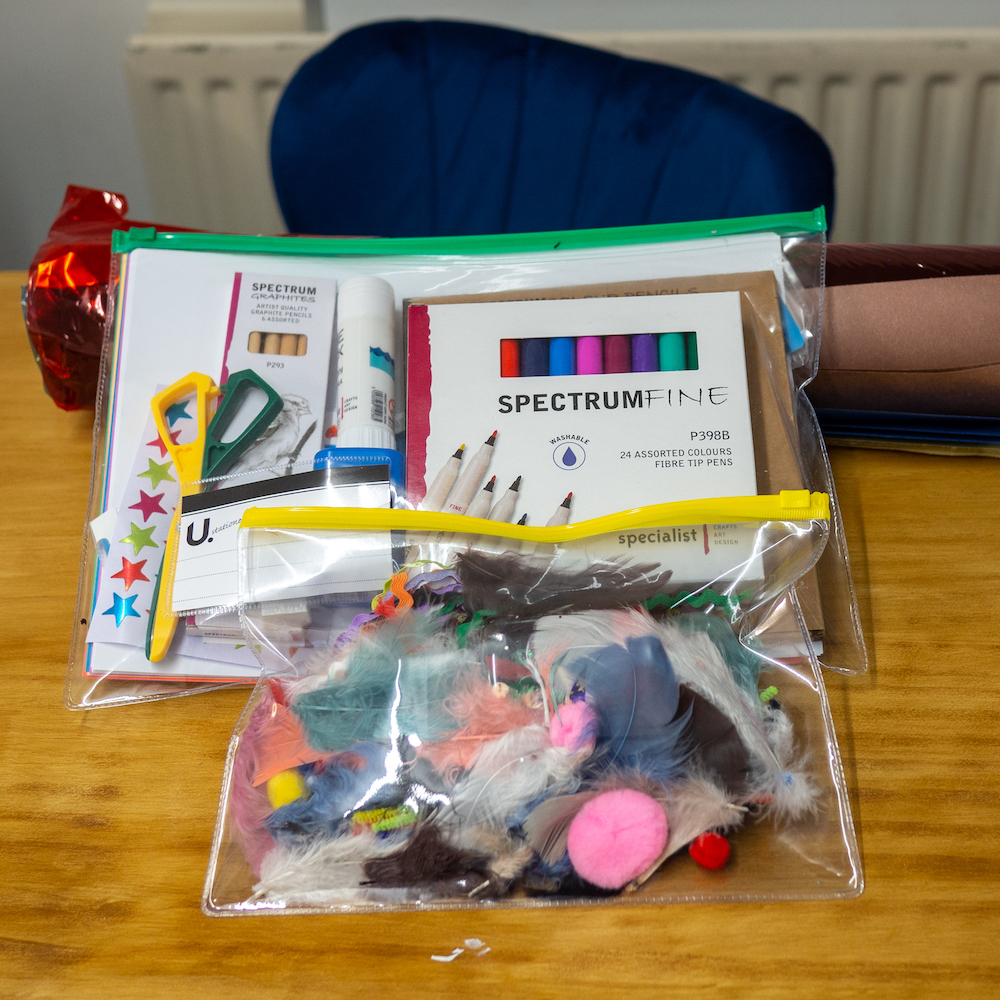
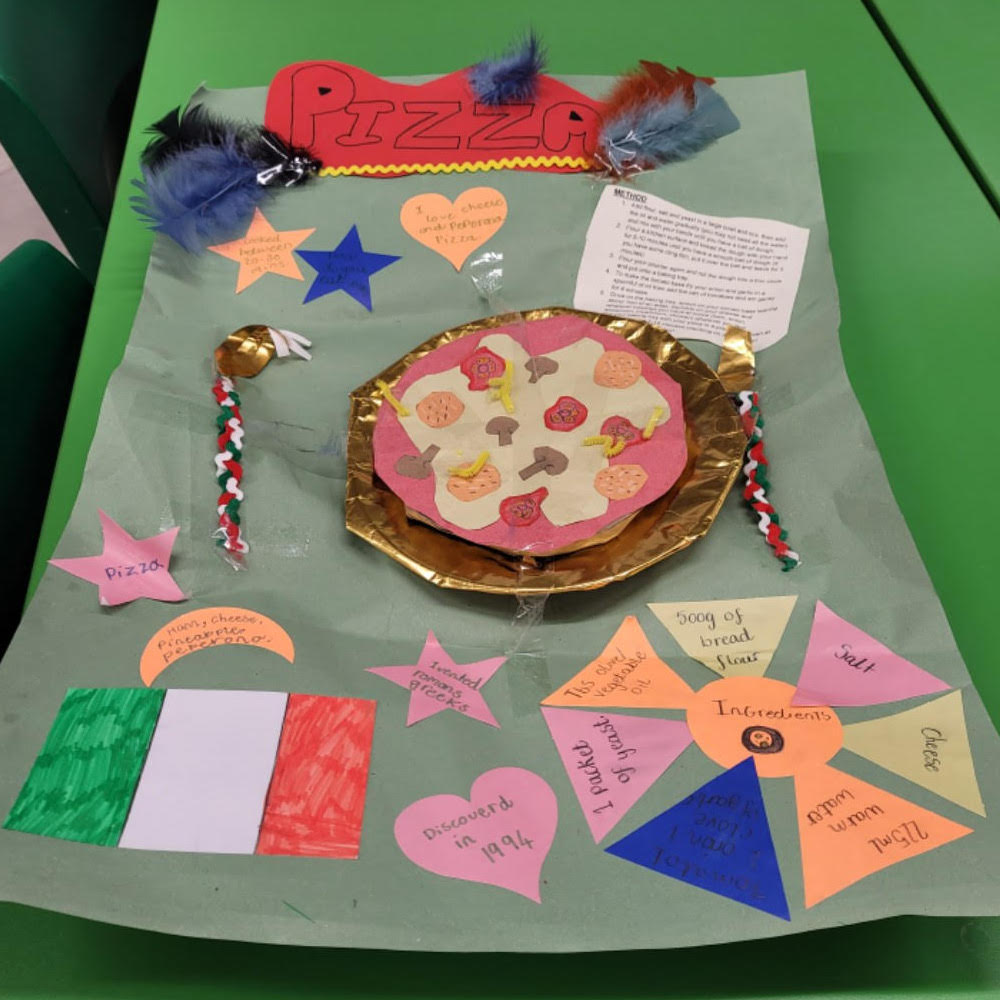
The Little Green Repair Café
Discussions about waste and ways to build on positive climate-related actions already being taken by individuals led to plans for a repair café. During Kirsty and Jeni’s CULTIVATE project, S-Mart opened up a new space called the Little Green Café. In seeking a friendly, welcoming place to host their event, they named their drop-in the Little Green Repair Café, in order to connect with the café and its ethos.
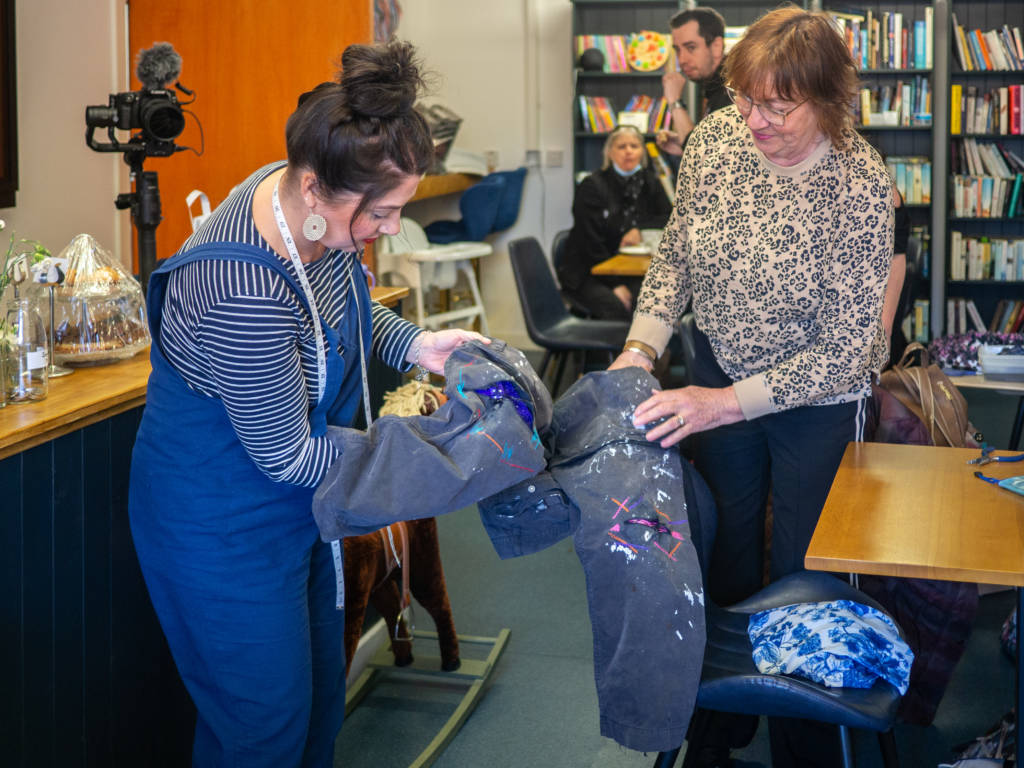
The invited specialists to help them on the day: Gail Melville, who runs a repair business in Forfar, and members of the Busy Bees craft croup, who came along to assist. A stall was placed outside to draw folks in, as well as show examples of mending and some books for inspiration. People we’re encouraged to bring an item in to mend in exchange for a discount in the café. A mix of regulars and new faces came along on the day to specifically ask about or have items repaired, and others came along purely to join in with conversations about repair and maintenance.
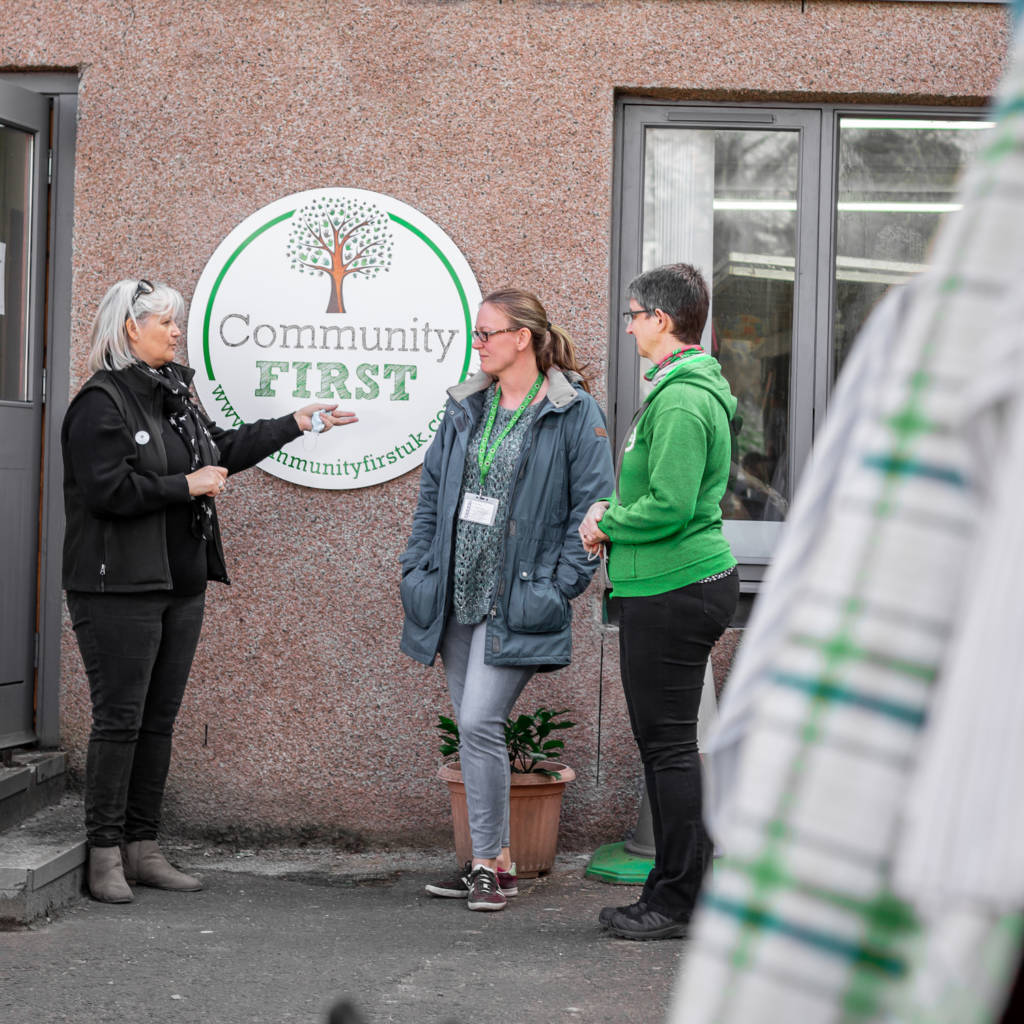
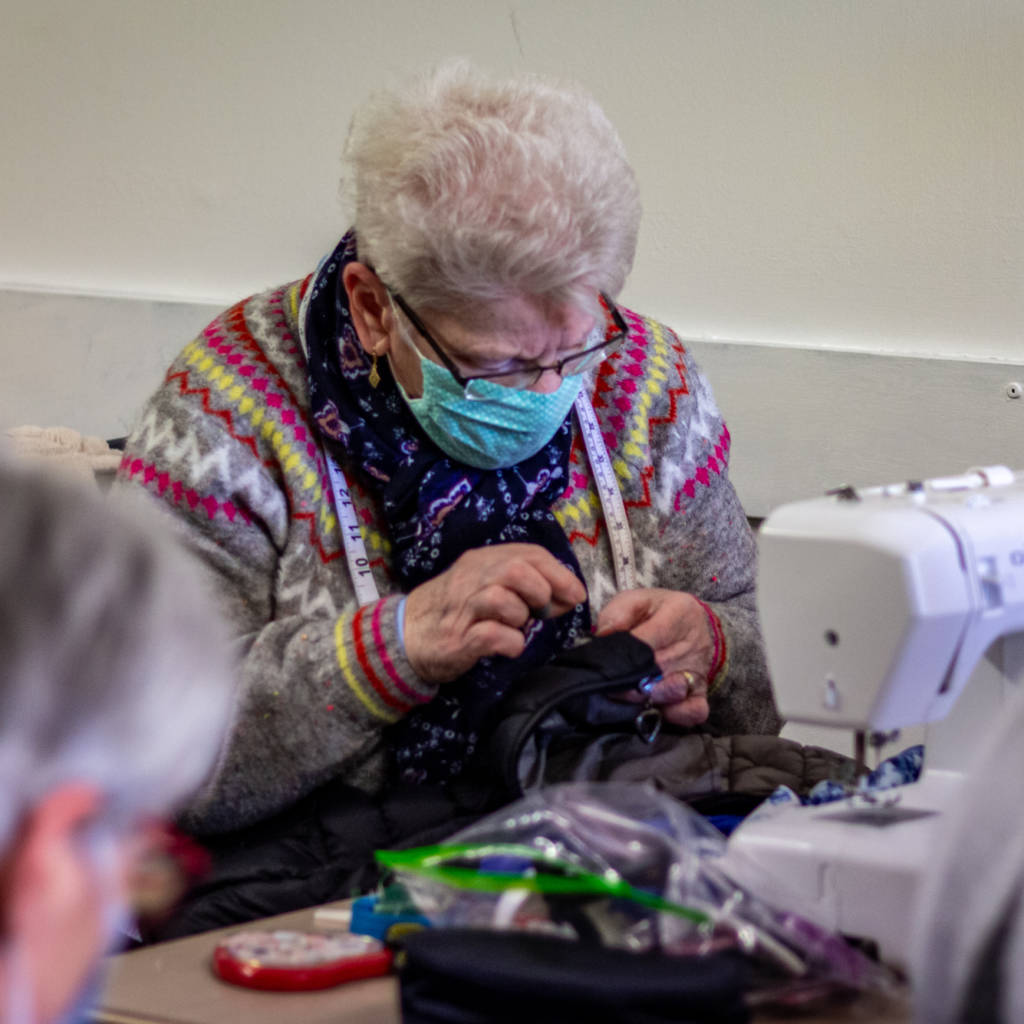
Gail and the Busy Bees worked throughout the day, with repairs including a dog jacket, a down coat, trouser hemming, ripped work-trouser knees and an ingenious repair for a sticky coat zip using a lead pencil. One person came in to enquire about fixing a car battery, which wasn’t possible but prompted further chat about necessary repairs. Those using sewing machines shared tips, and visitors contributed their own knowledge to discussions.
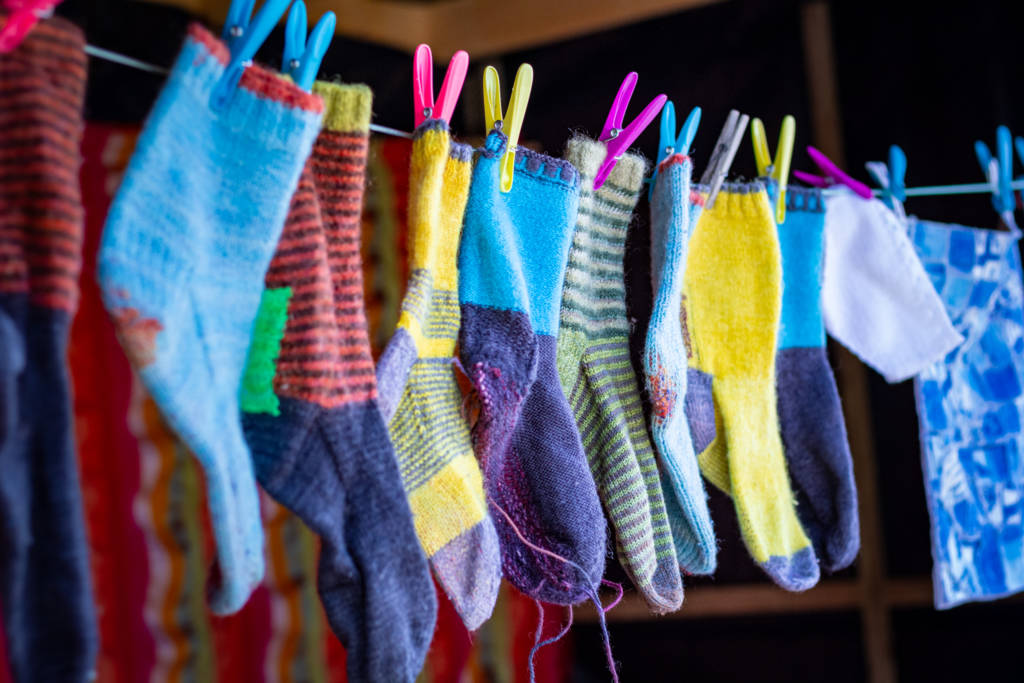
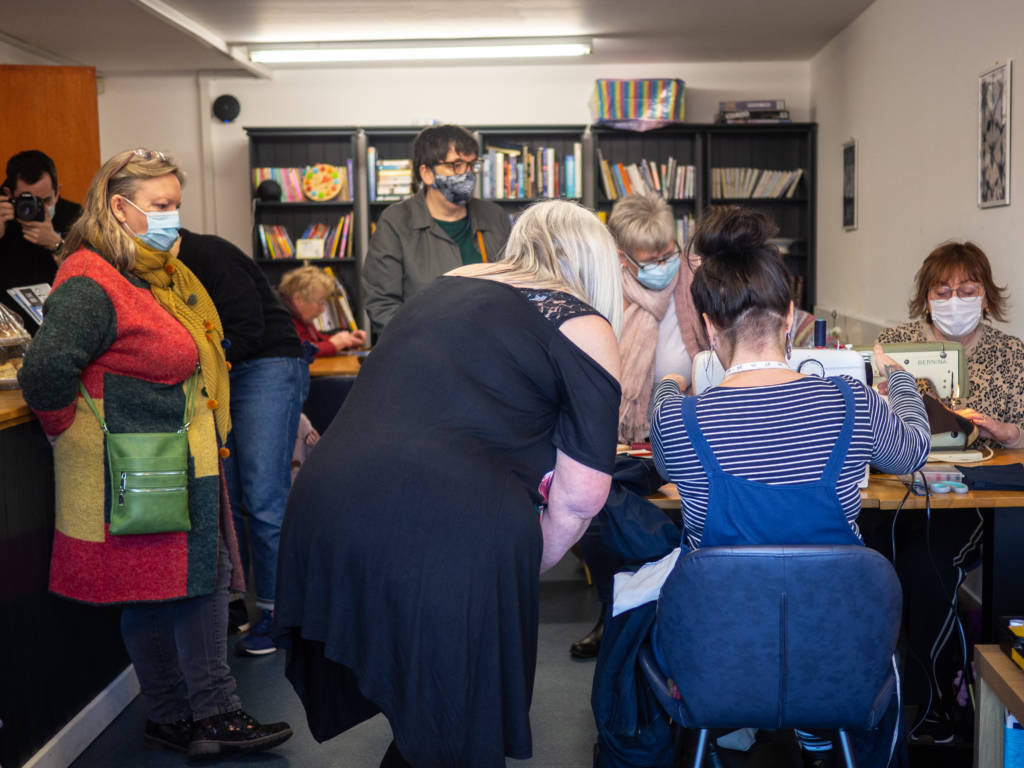
As well as chatting about the importance of repairing and mending, and how skills could be passed on, there was a lot of talk about the shop itself and why it is an important place in the town. Two people who visited to have items mended suggested that a regular event would help to combat loneliness. Another person who had moved to the area during lockdown said they’d brought in a repair as a way to learn about the shop and make connections—they subsequently filled in a volunteer form for the shop. There was a clear agreement resulting from the day that further events would be beneficial, and the Busy Bees craft group now hold their weekly meetings in the café.
Led by Creative Dundee over three years, CULTIVATE brings together creative practitioners and community groups across the Tay region to explore climate justice in a practical and meaningful way.
CULTIVATE is part of Culture Collective, a network of 26 participatory arts projects, shaped by local communities alongside artists and creative organisations. Culture Collective is funded by Scottish Government emergency COVID-19 funds through Creative Scotland.
Culture Collective has the potential to place creative practice right at the heart of a just transition and help shape the future of local cultural life, demonstrating the critical impact of community engagement, and the role creativity and culture play within it.

Thank you for visiting
If you would like to support us in creating even better content, please consider joining or supporting our Amps Community.
